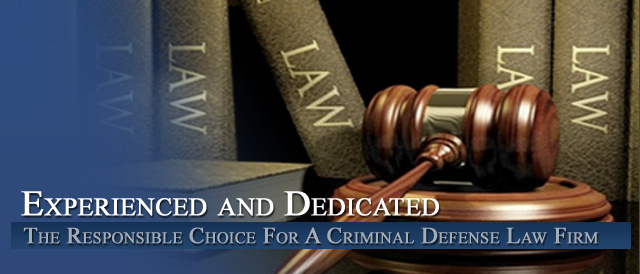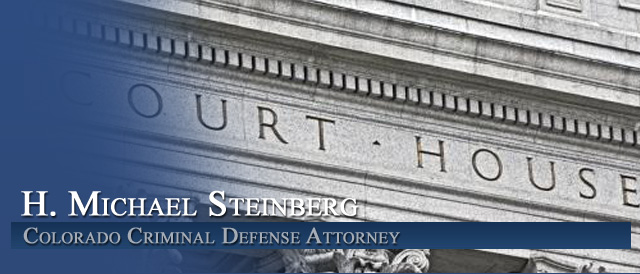




Colorado Federal Law: Release and Detention Issues after Arrest
Initial Court Appearance
At a defendant’s initial court appearance (which usually occurs within 24 hours after arrest), the federal magistrate or judge determines whether the defendant may be released pending trial. The magistrate may:
(1) release the defendant “on recognizance” if the magistrate is confident that the defendant will appear as required at all criminal proceedings.
(2) attach conditions to the defendant’s release, such as placing him in the custody of a designated individual or requiring the deposit of bail, in order to better ensure the defendant will appear as required.
(3) order the continued confinement of the defendant pending trial (“preventive detention”) if the magistrate determines that no conditions will reasonably ensure the defendant’s appearance as required or that his release will jeopardize the safety of others.
In federal criminal cases, a defendant is entitled to representation by counsel at the bail determination, and indigents are appointed counsel for such purpose. Fed. R. Crim. P. 44(a).
Many state court systems, however, do not provide counsel to indigents for bail proceedings.
Bail – Amount of Bail
The Eighth Amendment, as well as all states, by constitution or statute, prohibits the setting of “excessive” bail. Bail is excessive if it is set at an amount higher than is deemed necessary to ensure the defendant’s appearance at trial.
In determining the appropriate amount of bail in a given case, the magistrate is to consider:
- the nature and circumstances of the offense charged.
- the weight of the evidence against the defendant.
- the defendant’s character.
- the financial ability of the defendant to meet the bail requirements.
The Constitution does not entitle an indigent to be released without bail if he cannot afford to meet any financial conditions.
The Federal Bail Reform Act
Under the Federal Bail Reform Act of 1984, 18 U.S.C. §§ 3141–3150, the magistrate is required to release the defendant on his own recognizance “or upon execution of an unsecured appearance bond in an amount specified by the court,” unless the magistrate concludes that more restrictive conditions are necessary to reasonably ensure that the defendant will not flee the jurisdiction and/or endanger others while released pending trial.
The magistrate may not set bail in an amount that is beyond the means of the defendant and therefore results in pretrial detention. 18 U.S.C. § 3142(c)(2). If a judge determines that the defendant should be detained pending trial, he is required to follow the detention provisions set out in the Act.
Preventive Detention
The Detention Hearing
Under the Federal Bail Reform Act, 18 U.S.C. § 3142(f)(1), the magistrate must hold a detention hearing on the motion of the prosecutor if the defendant is charged with:
• a crime of violence.
• any offense for which the maximum sentence is life imprisonment or death.
• a drug offense for which the maximum term of imprisonment is ten years or more.
• any other felony committed by a person previously convicted of two or more of the above offenses.
A hearing is also required on a motion of the prosecutor or on the judge’s own motion in cases that involve an allegation of:
• a serious risk of flight.
• obstruction of justice.
• intimidation of a prospective witness or juror.
At the detention hearing, which ordinarily must be held at the defendant’s first appearance before the magistrate, the defendant is entitled by statute to be represented by counsel, to testify in his own behalf, to present witnesses, and to cross-examine witnesses called by the prosecutor. Rules concerning the admissibility of evidence at criminal trials do not apply at the hearing, thus allowing the introduction of hearsay and evidence obtained in violation of the Constitution.
The prosecutor or defendant may immediately appeal the magistrate’s order in the detention hearing. 18 U.S.C. § 3145.
Determination of Release or Detention
Relevant Factors
In order to determine whether any condition(s) will reasonably ensure the appearance of the defendant and the safety of others, the magistrate must consider:
• the nature of the offense charged.
• the weight of the evidence against the defendant.
• the defendant’s physical and mental condition.
• the defendant’s ties to family and the community.
• whether, at the time of the current arrest, the defendant was already on probation or parole or on pretrial release from another offense. 18 U.S.C. § 3142(g)
Statutory Presumptions
The Federal Bail Reform Act of 1984 provides for two rebuttable presumptions in
detention hearings.
The defendant is presumed to be too dangerous to be released if the prosecutor proves:
(1) the defendant was previously been convicted of one of the enumerated offenses that justifies a detention hearing;
(2) that the offense for which the defendant was convicted was committed whilehe was on release pending trial for another crime; and
(3) five years have not elapsed since the later of the date of the defendant’s prior conviction or his release from prison.
It may also be presumed that no conditions of release will reasonably ensure that the defendant will not flee or commit a crime, if the magistrate determines that there is probable cause to believe that the current charge involves an enumerated serious drug offense or an the use or possession of firearms. 18 U.S.C. § 3142(e).
If you are arrested in a Federal Case – you will – no doubt have questions about the arrest and the setting of bail.
An analysis of the factors the court considers in the bail hearing include the nature of the offense, the weight of evidence, personal characteristics, dangerousness, and the source of collateral. Conditions of release and detention, the review and appeal of orders of release and detention, failure to appear, crimes while on release, violations of release conditions, detention or release after adjudication of guilt, and material witnesses are all issues that may be pertinent to your case
Please contact the Colorado Criminal Defense Law Firm of H. Michael Steinberg – Federal Criminal Defense …at the following phone numbers:
Other Articles of Interest:
- Your Right to Bail
- A Case Timeline
- 023. COLORADO CRIMINAL CODE – GOVERNMENTAL OPERATIONS – OBSTRUCTION OF JUSTICE – RESISTING ARREST I
- Domestic Violence
- Federal Detention Hearings – Release or Detention Pending Judicial Proceedings Under 18 U.S.C. §§ 3141-3156












